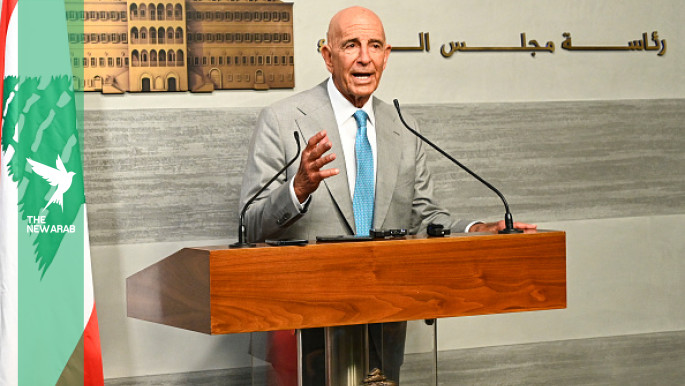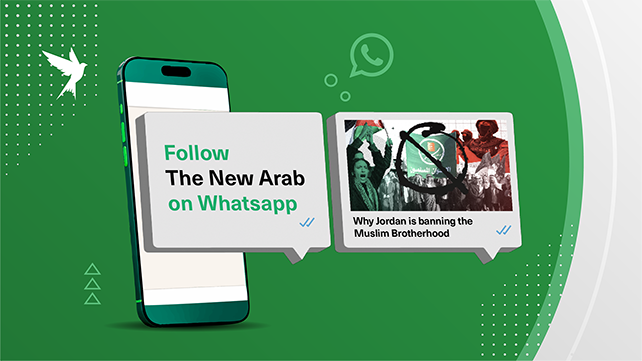The special envoy has led US discussions with Lebanese leaders over Hezbollah’s disarmament over the months [Getty/file photo]
US envoy Tom Barrack has continued to apply pressure on the Lebanese government to speed up the disarming of Hezbollah.
The ambassador to Turkey and special envoy for Syria warned on Sunday that the Lebanese government’s credibility “rests on its ability to match principle with practice,” in reference to pledges that Beirut has made to gain state monopoly on arms.
“The government and Hezbollah need to fully commit and act now in order to not consign the Lebanese people to the stumbling status quo,” he said.
“As long as Hezbollah retains arms, words will not suffice.”
On Friday, Lebanese President Joseph Aoun stressed that negotiations with Hezbollah remain ongoing but acknowledged that they were progressing slowly.
“There is some responsiveness to the ideas we’re discussing, even things are moving at a slow pace,” he said.
Hezbollah had rejected Barrack’s roadmap that would see the group disarm within four months, in exchange for a halt to Israeli withdrawal from the country, as well as a cessation of strikes.
The group’s current leader, Naim Qassem, said: “We are a people who do not surrender”, and rejected US pressure to act on the matter.
Qassem, while maintaining being open to dialogue, has continuously stressed that the group giving up its arms would be “suicidal” amid Israel’s frequent strikes on the country’s south.
Disarmament has been the centre of national and international negotiations with Lebanon following the November ceasefire, with Barrack making several diplomatic visits to Beirut on the matter since his appointment.
One of Lebanon’s most high-profile politicians, Walid Jumblatt, spoke in favour of Hezbollah’s disarmament in an interview with Saudi channel Al-Arabiya.
The Druze leader said that Hezbollah must “realise that keeping its weapons and missiles serves no purpose,” stressing that it would cause problems for the country and Lebanon would “not stabilise” as a result, in Saturday’s interview.
Founded in the 1980s in response to Israel’s invasion of southern Lebanon, the Iran-backed group grew into a Shia Islamist party and militant group.
The group has fought several conflicts against Israel, but was significantly weakened late last year after Tel Aviv launched a full-scale war in Lebanon, in parallel with the military onslaught in Gaza.
Several high-profile members were killed, including its Secretary-General Hassan Nasrallah, as well as his successor, Hashem Safieddine.
More than 4,000 Lebanese were killed by Israel, who struck the country’s south, Beirut and the eastern Beqaa Valley, among other locations.
A ceasefire between Israel and Hezbollah was then reached in November last year, which Israel routinely continues to violate.


